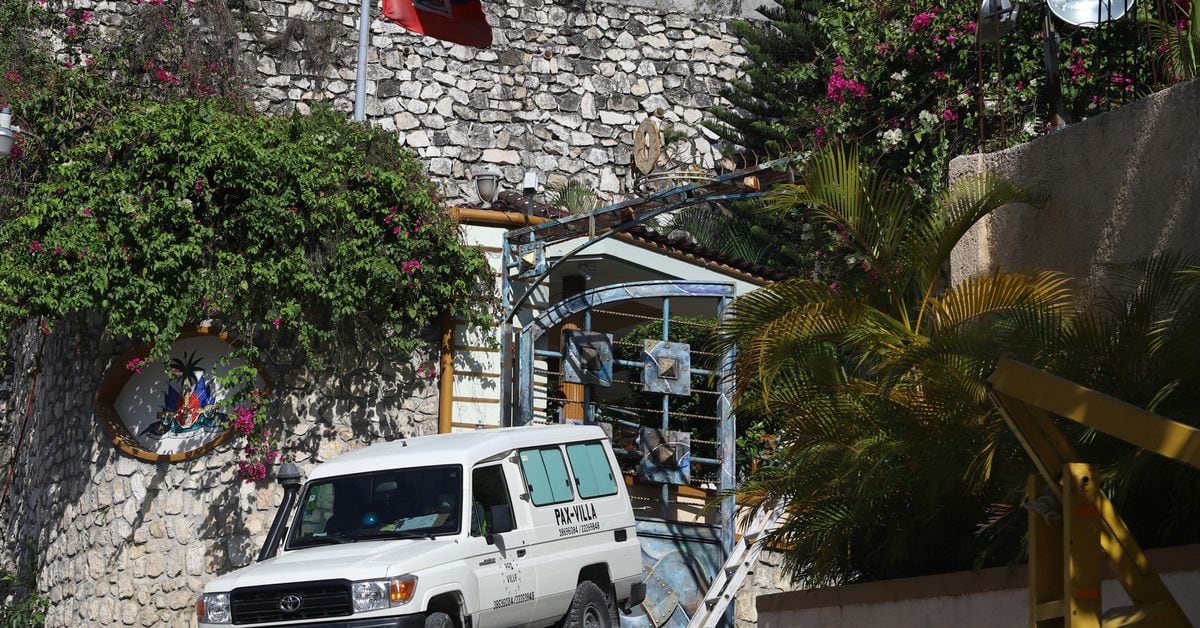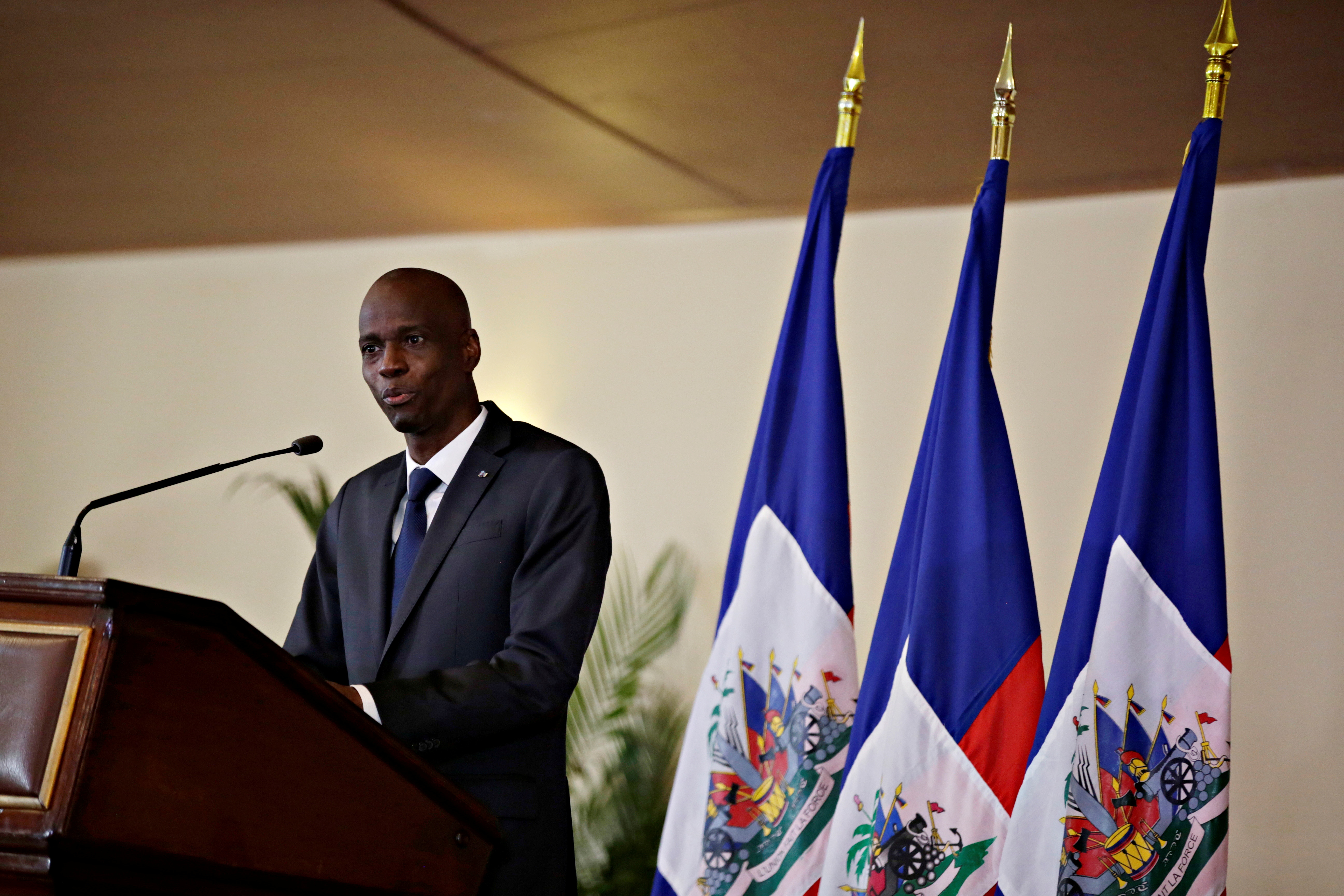Haiti approached both the US and the United Nations for security aid soon after the murder of President Jovenel Moise, asking them to deploy soldiers to guard infrastructure in the event of unrest, according to multiple reports.

www.rt.com
Haiti requested US troops & UN peacekeepers to secure ‘key infrastructure’ after president’s assassination – reports
9 Jul, 2021 22:59 / Updated 3 hours ago
Get short URL
Police stand guard near the private residence of Haiti's President Jovenel Moise after he was shot dead by gunmen, in Port-au-Prince, Haiti, July 7, 2021. © Reuters / Estailove St-Val
Follow RT on

Haiti approached both the US and the United Nations for security aid soon after the murder of President Jovenel Moise, asking them to deploy soldiers to guard infrastructure in the event of unrest, according to multiple reports.
The country’s elections minister Mathias Pierre said the request for US troops was made after Secretary of State Antony Blinken and President Joe Biden himself had
“promised to help Haiti” in the wake of the president’s assassination earlier this week, the New York Times
reported on Friday. He warned that
“urban terrorists” could exploit current tensions and carry out further attacks.
“The group that financed the mercenaries want to create chaos in the country,” Pierre said.
“Attacking the gas reserves and airport might be part of the plan.”
While a Pentagon spokesperson
declined to comment on the matter after being contacted by a journalist with Sputnik, an unnamed senior administration official later said Washington has no plans to send soldiers
“at this time,” according to Reuters.
ALSO ON RT.COMHaiti’s president killed by ‘foreign hit squad’ of ex-Colombian military & Haitian-Americans, 11 arrested inside ‘Taiwan embassy’
During an earlier press briefing on Friday, State Department spokeswoman Jalina Porter said she could not confirm that such a request was made, though White House Press Secretary Jen Psaki did note that federal agents from the FBI and the Department of Homeland Security would be dispatched to the Haitian capital to assist
“as soon as possible.”
Robenson Geffrard, a journalist at Le Nouvelliste, a major Haitian newspaper, echoed Pierre’s concerns about unrest, saying there is now a
“sense of uncertainty” and a
“shadow of violence” hanging over the country, which had already been in the grips of a
political crisis even before the hit on the president.
Haiti also called on the UN to send peacekeepers soon after the president’s death, according to a letter obtained by Reuters on Friday. Sent by Acting Prime Minister Claude Joseph on July 7 – the day Moise was killed – the message requested a troop deployment to
“support the efforts of the national police” and help
“reestablish security and public order in the whole territory.”
The UN has so far offered no public comment on the purported request. The body’s 15-member Security Council would have to vote to authorize such a deployment.
Moise was shot dead by a group of gunmen at his home near Port-au-Prince early on Wednesday morning; his wife was also severely injured and airlifted to a hospital in Miami, Florida.
While few details about the assassins have emerged, Haitian officials have alleged that at least 28 people were behind the plot, including 26 Colombian citizens and two Haitian-Americans. National police chief Leon Charles confirmed on Thursday that 15 Colombians and the two Americans had been taken into custody, while three others were killed in firefights with police. At the time, he said eight more suspects remained at large.
Colombian Defense Minister Diego Molano also said on Thursday that preliminary information suggests that former members of his country’s military had participated in the murder plot.
The two Haitian-Americans, identified as James Solages and Joseph Vincent, have admitted to working as translators for the assassins, according to Haitian Judge Clement Noel, as cited by the Times. They claimed the original plan was to kidnap the president and move him to the national palace, though the judge noted that Solages was
“very evasive” in some of his answers, adding that the testimony did not offer much detail on the wider plot or possible motives.
As fears of unrest run high, Haiti remains in an official
“state of siege,” with curfews, border closures and stricter media controls imposed nationwide, while soldiers have been deployed to police the streets. The 15-day emergency order will stay in effect until later this month.








